More than any candidate in memory, Donald Trump has challenged basic foreign policy assumptions and dismissed the value of traditional expertise. Daniel Byman considers some of the assumptions Trump and his team appear to bring to the table as they enter office. This piece originally appeared on Lawfare.
A new day, a new president, a new set of challenges for the foreign policy establishment.
It’s hard to be a member of the foreign policy establishment. President George W. Bush challenged many of the establishment’s basic premises with his emphasis on preemption and Texas-tough rhetoric. Many of us breathed a sigh of relief when Obama came in. Surely the cerebral University of Chicago law professor, with his conciliatory rhetoric and embrace of alliances, would realize our worth. Yet he too quickly tired of us, his team derisively referring to think tanks and policy intellectuals as “the blob.”
And now there is Trump. More than any candidate in my memory, he has challenged basic foreign policy assumptions and dismissed the value of traditional expertise. Some of his Cabinet picks bring considerable experience to the job, but many are relative newcomers with little track record as policymakers.
But does that mean they will be a disaster, or might they be a breath of fresh air? After all, it’s not as if U.S. foreign policy has succeeded brilliantly in recent years.
So let’s consider some of the assumptions Trump and his team appear to bring to the table as they enter office. Some are about how the world works, while others concern the best way to design and implement U.S. foreign policy.
Assumption #1: Calling it “Radical Islam” Makes a Difference
Trump and his advisors have stressed the evil of “radical Islam” and blasted the Obama administration for refusing the use the term. Presumably, the new president will regularly employ the term, though it is not clear how this will shape his policy. The President’s team believes the clarity associated with the term will help better identify the enemy and properly broaden the war against terrorism beyond a particular group or groups: the right language will mean the right enemy, and that will mean the right policy.
Yet how much such rhetoric matters is an open question. Critics blasted Bush for using a “war” metaphor when discussing how to fight terrorism because it seemed to prioritize military solutions and made the fight against a tactic rather than a particular set of enemies. Yet President Bush also pushed public diplomacy, intelligence collection, and other non-military measures, and he did not try to fight every terrorist everywhere. Obama’s reluctance to use the term “radical Islam” didn’t seem to stop him from an aggressive campaign to kill terrorist leaders and bringing the fight to countries like Libya and Somalia, in addition to more traditional battlegrounds like Afghanistan, Pakistan, and Iraq.
If using the term to guide policy does matter, it may make things worse, not better. The term is so broad as to be potentially meaningless—there are many groups that are violent but not anti-U.S., and still others that are hostile to America but not violent. Spreading the war to fight any potential foe risks making it vast and (even more) endless.
Assumption #2: Foreign Public Opinion Doesn’t Matter
Winning the hearts and minds of foreigners (or Democratic voters, for that matter) doesn’t matter much to Trump. More broadly, Trump’s belligerent assertion of an America-first policy wins him admiration among anti-immigrant zealots and other right-wingers in Europe—admittedly an ascendant lot—but it invites scorn among more cosmopolitan Europeans and intellectuals, including many government officials.
The link between public opinion and anti-U.S. terrorism or anti-U.S. policy is often weak.
It is right for Trump and his senior officials to ask “so what?” The link between public opinion and anti-U.S. terrorism or anti-U.S. policy is often weak. Leaders will, or at least should, follow their own countries’ interests and domestic politics when designing their foreign policies. Just as they hold their noses and work with political enemies at home to advance their domestic agendas, they may do so in their foreign policies. And we still struggle to figure out why foreigners embrace anti-U.S. terrorism. I can give you a lot of potential reasons for thinking public opinion matters (including several I believe), but the evidence is not strong. And we’re going to find out if the Trump hypothesis here has merit.
Assumption #3: Allies are Overrated
Just as Trump appears to care little about foreign public opinion, he is also skeptical of traditional allies. Despite efforts by incoming Cabinet members to play up the importance of allies and the need for NATO, the new president often derides them. In a post-election interview with European journalists, Trump declared NATO “obsolete,” slammed German Chancellor Angela Merkel, and seemed to encourage the breakup of the European Union.
As I’ve argued in other contexts, U.S. allies are far from perfect (and, to be fair, they more than return the compliment when talking about the United States). Many European allies do not spend enough on their own militaries, as the president has highlighted. Some allies also behave recklessly because they know the United States is there to back them up, which risks entrapping the United States in conflicts better avoided.
But president after president has put up with them because they are necessary. To fight terrorists, the United States needs bases and access. When allies put in their own troops, it eases the burden on the U.S. military and places fewer American lives at risk. When it comes to persuading or coercing a rival like China, having allies lined up greatly increases U.S. bargaining power, magnifying the value of sanctions and other threats.
Alienating our friends could be a disastrous mistake, particularly if at the same time, he turns their publics against America. Trump is likely to find out that many of his foreign policy goals cannot be accomplished without help.
Assumption #4: Russia Is America’s Natural Partner
If rejecting traditional allies was not dramatic enough, Trump also sees Russia as a logical partner. Trump and his National Security Advisor, Michael Flynn, believe Russia can be a vital ally in fighting the Islamic State, and his choice for Secretary of State, Rex Tillerson, has strong business connections to Russia, though in hearings he has tried to distance himself from Moscow. Trump seems unconcerned about Russia’s aggressiveness in Ukraine and Europe in general and had considered lifting the sanctions imposed by the Obama administration. Once again, the new president appears at odds with some among his own chosen Cabinet, many of whom expressed concerns about Russia during their confirmation hearings. CIA Director-designate Mike Pompeo even chastized Russia for interfering with the U.S. election. Many Republican members of Congress have also expressed skepticism, to put it mildly, about the value of a closer relationship with Russia. Naive thinking about the Kremlin, in their eyes, was a pipe dream of Democrats, not Republicans.
A better relationship with Russia would be a good thing—but only if it’s on America’s terms. The Obama administration too tried to “reset” relations with Moscow, only to see them get even worse. But if Russia were to end its meddling in Ukraine, ease pressure on the Baltics, and stop backing Middle Eastern thugs like Bashar al-Assad, it would help regional stability and make it more likely that local democracies would flourish. No one seems to think that’s likely, but Trump seems to be willing to embrace Moscow on Putin’s terms, not America’s. He might accept a Russian sphere of influence in its neighborhood, even if it means the de facto dismemberment of Ukraine and forcing other nearby states to kowtow to Moscow. If he truly doesn’t care, then nothing will be lost in his eyes. The payoff presumably would be more cooperation against the Islamic State, though it’s not clear to me just how useful this would be. A direct alliance with Russia also puts America openly on the side of Moscow, which is loathed throughout the Sunni world for its backing of the genocidal Assad regime.
Assumption #5: Israel Can Do What it Wants
U.S. presidents in recent years openly side with Israel when it has disputes with the Palestinians and its Arab neighbors. The United States offers Israel massive economic and military support and serves as the small state’s diplomatic champion. When it has not done so, such as Obama’s decision in his final days to abstain on a toothless anti-settlements resolution, it’s big news. Trump, however, promises to take America’s pro-Israel stance one step further. As a candidate, he called for uncritical support for the Jewish state and, as proof, appointed an ambassador who immediately stated he “[intends] to work tirelessly to strengthen the unbreakable bond” between the U.S. and Israel “from the U.S. embassy in Israel’s eternal capital, Jerusalem.” This acceptance statement alone caused a political uproar, as relocating the U.S. embassy to Jerusalemwould break two decades of diplomatic precedent against moving to the disputed city and, more importantly, dangerously antagonize, if not provoke, the Palestinians. Yet David Friedman, a long-time advisor and bankruptcy lawyer for Trump, is certainly no stranger to courting controversy over his pro-Israel efforts. Beyond his extensive advocacy for Israeli far-right positions, including expanding West Bank settlements and even outright annexation of occupied territory, Friedman has directly funded and supported Beit El, a settlement outside Ramallah. Thus, Trump’s pick effectively signals a rejection of the traditional U.S. positions against settlements and for a two-state solution.
The peace process has been dead for years, despite Obama’s Secretary of State John Kerry’s efforts to revive the corpse.
The peace process has been dead for years, despite Obama’s Secretary of State John Kerry’s efforts to revive the corpse. So Trump’s abandonment of it is more a recognition of reality than a dramatic change in policy. But his apparent willingness to side with Israel no matter what is a significant shift.
This may not matter. The salience of the Israel-Palestinian divide has declined as the Syrian civil war and other issues have risen to the fore in the Middle East. America may lose a few points in regional public opinion but, as noted above, that won’t give Trump sleepless nights.
This openly uncritical backing of Israel, however, will change Israeli politics dramatically. Israeli political leaders exploit U.S. pressure to avoid foolish policies demanded by domestic audiences. Because both elite and public opinion in Israel recognize the value of the U.S. alliance, prime ministers cite the dratted Americans as a reason to end a flailing military operation, resist calls to suspend peace talks after a terrorist attack, and otherwise take politically costly steps that they know are in their own interests. Now Israeli leaders won’t have this excuse and may even have an ambassador urging on greater folly.
Assumption #6: The Rough Stuff Works
On the campaign trail, Trump promised to reauthorize torture—vowing to “bring back a hell of a lot worse than waterboarding.” He also pledged to reverse Obama’s policy of steadily transferring terrorist detainees to partner nations, instead claiming “we are keeping open [the Guantanamo Bay detention facility]… and we’re gonna load it up with some bad dudes.” Trump has walked away from some of this: after a conversation with Secretary of Defense nominee (and retired Marine General) James Mattis, the President claimed to be surprised. Specifically on the utility of waterboarding, Trump shared Mattis’ response: “I’ve always found, give me a pack of cigarettes and a couple of beers and I do better with that than I do with torture.” His designated CIA director, Mike Pompeo, has also rejected torture. However, despite being “impressed,” Trump still refused to definitively disavow torture. Instead he has continued to set a tone of toughness as have several of his advisors.
Torture’s value in the war on terrorism is hotly debated to this day. Critics believe that U.S. waterboarding and other measures against senior Al Qaeda leaders did not yield any significant information from terrorists while alienating world opinion and producing a torrent of misinformation. Proponents, including many Republicans, believe it did produce information of value and corroborated many important existing reports. Guantanamo—and with it the value of some form of detention without trial—is debated, both for its legality and for whether the outrage it produces exacerbates terrorism or not.
It is not likely to me that a Trump administration would repeat the exact rough measures used under Bush or revive the specific program, but we should be on the lookout for ruthless techniques or policies that human rights groups would question. In addition, Trump’s team could broaden existing Obama programs in ways that would trouble human rights advocates. For example, on drone strikes, Trump could relax the rules of engagement, making it easier to attack suspected terrorists by lowering the bar for civilian casualties and other collateral damage. Similarly, he might also work with nasty governments or substate groups that are fighting terrorists, even if these partners regularly commit atrocities.
Assumption #7: Tough Policymakers Make for Tough Policy
Trump has put in place an unprecedented number of military men in senior position: Marine Gen. Jim Mattis for Defense Secretary, Marine Gen. John Kelly for Homeland Security Secretary, former Navy SEAL Cdr. Ryan Zinke (also a Congressman) for Interior Secretary, Army Lt. Gen. Michael Flynn as National Security Advisor, and Army Maj. Vincent Viola as Army Secretary. The working assumption seems to be that these are tough, no-nonsense men who will take on terrorists, use rough stuff, call out Radical Islam, and otherwise move away from the namby-pamby approach of the Obama administration and us blob types.
This one might be dramatically wrong. No one doubts that Kelly, Mattis, and other are personally tough. But having seen war, rarely are military men eager for the young men and women of this country to see it again if it is not necessary. The scholars Michael Horowitz and Allan Stam found “military personnel that become civilian political leaders tend to be strong, but less militaristic,” particularly if they have had combat experience. Despite many myths and movie scenes to the contrary, military leaders are often quite respectful of international law. It is this same law, of course, that protects U.S. soldiers from mistreatment when the enemy captures them. My experience interacting with military leaders is that they also believe they are the tip of the spear for the forces of civilization. That often means bloodshed, but it also means restraint. We are the good guys, after all, and we must walk the walk.
Perhaps most important, military leaders tend to value allies. For all the jabs about feckless Europeans or incompetent Middle Eastern militaries, allies play a wide range of vital military roles. One of the most important is providing troops who fight, and often die, to protect American interests (and, of course, those of their own countries). In addition, allies provide important bases, access to the battlefield, logistical support, and other military necessities.
I’d expect most of the generals to be voices of caution, not warriors foaming at the mouth.
***
In short: Trump’s foreign policy assumptions fly in the face of many traditional U.S. policy approaches and the preferences of powerful bureaucracies. We should expect international realities and bureaucratic obstacles to obstruct, or at least water down, some initiatives, while those that get through might not just fail but may leave the United States worse off for pursuing them. But I’m cautious about predicting how all this will play out. As a candidate, Trump excelled at destroying truisms about how politics works; over the coming years, we will find out if this holds true for foreign policy as well.



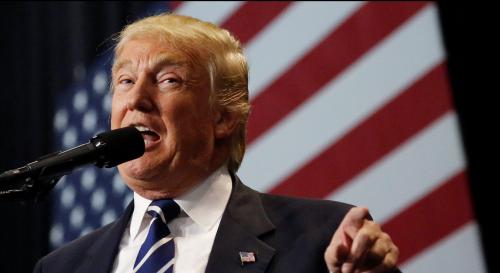
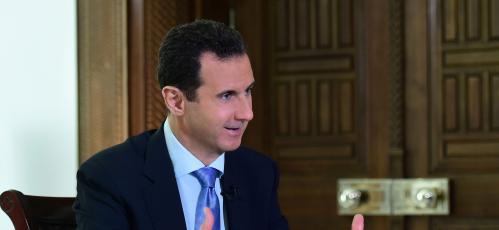


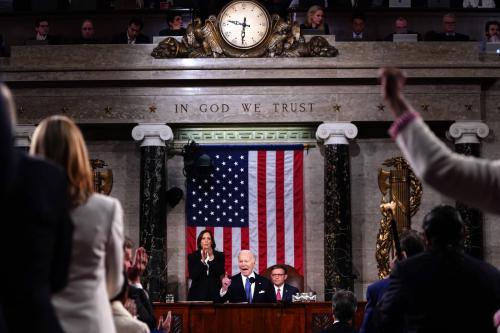
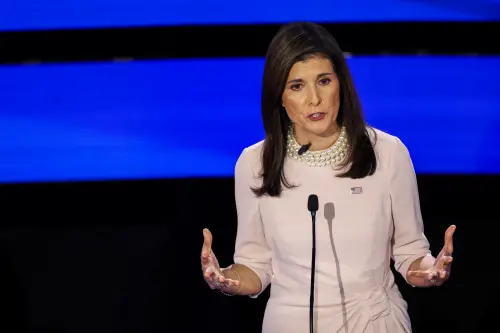
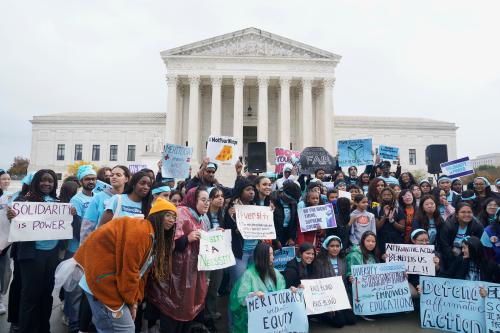
Commentary
Seven Trump foreign policy assumptions
January 23, 2017